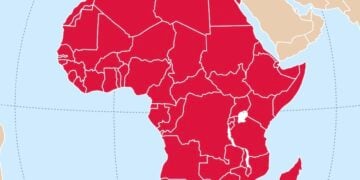In his inaugural speech, President Bola Ahmad Tinubu announced the removal of oil subsidy. Not a single individual among the 220 million Nigerians came out on the street across the 36 states of the federation and Abuja to protest his action, perhaps out of the belief that the fuel subsidy regime in place for some decades had been a conduit pipe for siphoning the wealth of the country by some shamed socialites and a few corrupt people in the oil sector.
A month later, the Federal Government announced 400 billion Naira revenue accruing to its coffers due to the removal of the subsidy. Nigerians had made the right sacrifice by enduring the hardship of buying a liter of petrol at N550-N617 which translates into those billions generated internally. The reasoning by the Tinubu government of removing subsidy was to free some revenues towards infrastructural development and 400 billion Naira monthly would go a long way to ease hardship for ordinary Nigerians, if the Tinubu government means business.
In another unpopular and arbitrary decision, Tinubu earmarked 500 billion Naira to dole out as palliatives due to the subsidy removal. The sharing formula of the palliative is definitely elitist and skewed to favor some states and a few individuals including the legislators and the judiciary.One would definitely be surprised at the speedy approval of this proposal by the Hallowed chamber.
Tinubu’s sharing formula of 70 Billion to the Legislators and 35 Billion to “Our Lords” while the poor man on the street (12 million out of over 200 million)would get a meager N8000 Naira for six months. We have seen the 8 wasteful years of the Buhari administration, and being condemned to the dustbin of history it cannot right any of its wrongs, unlike the present Tinubu government that is just two months old, with at least about four years of its mandate to save the country from its woes.
In view of that, this government must borrow a leaf from the former administration of Late Sani Abacha that created the PTF after fuel price increase in the early 1990s.
Tinubu should create an Independent Development Trust Fund for the new revenue windfall of 400 billion monthly hitherto paid as subsidy to drive its infrastructural development plan that could impact on: food security, water supply, health, education, transportation, housing, infrastructure, power and of course security.
The new Trust Fund should be managed by tested and trusted Nigerians of high caliber that can deliver without fear or favor.
On food security, which the Federal Government recently announced a state of emergency, should immediately be complemented by releasing grains from its strategic reserves to all the 774 local governments in the country at the subsidized rate for the next several months. Likewise, fertilizer should be subsidized at the rate of 5000 Naira or less to reach the small and subsistence farmers across all the local governments.
The federal government should also embark on massive drilling of boreholes, at least 4 boreholes per ward (708k per annum), to arrest water shortages in poor communities across the country.
Healthcare is gradually getting beyond the reach of the poor and vulnerable Nigerians.Thus, this sector also needs a declaration of national emergency and government hospitals should offer free consultation and drugs for perennial diseases that bedevil the masses.
Massive renovation and equipping of at least 20 primary/secondary schools in each local government area of the federation should start in earnest. School fees should be dropped and the school feeding program improved.
In order to improve and subsidize inter and intra state travel, 25 busses should be procured to operate in each of the 774 local governments. Ease of movement is paramount in lubricating the flow of humans and goods that stimulates economic growth which was recently hampered by the oil subsidy removal. At least one major road in each of the 774 local governments should be penciled and renovated immediately.
The power sector in recent years was able to generate and transmit 4-5 thousand megawatts, but the problem is the bottleneck experienced during transmission and distribution that continue to contribute to the growth of power poverty in Nigeria. This issue could be addressed by creating more sub-stations in some key local governments in the various states of the Federation.
In order to ensure effective and productive service delivery, it will be necessary for government to immediately address the issue of duplication of responsibilities that put a cog in the wheel of smooth operation of governance and government’s projects by bureaucratic bottlenecks while at the same time creating wastages of man-hour and manpower. Government must merge and rationalize where necessary key parastatals/Government owned companies. Government owned companies, should be reorganized and rejigged to deliver on their mandate through the provision of professional and competent management and the board.
On the issue of security, and social re-orientation, as well as maitenance of law and order at grassroots level, there is a need to revitalize our traditional rulers roles through the creation of Traditional Rulers Advisory Council. The breakdown of our social order owes its origin to the breakdown of the family unit and neighbourhoods.
As Tinubu is poised to appoint his ministers, we hope he would learn a lesson from the immediate past administration. He should appoint his ministers based on competence, integrity and credibility rather than rewards to political gladiators. If anything, Buhari had shown Nigerian politicians, especially the powerful governors bloc, by refusing the usual nomination from them.











